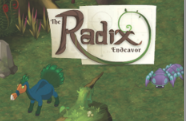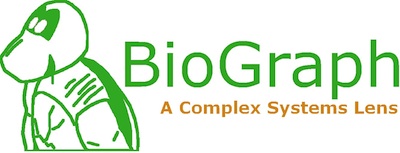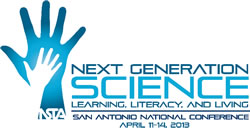MIT’s Education Arcade Releases Online Game for STEM Learning
Seeks High School Math and Biology Teachers to Participate in Research Pilot
CAMBRIDGE, Mass. – MIT’s Education Arcade has spent two years collaborating with teachers and game developer, Filament Games, to develop an immersive virtual environment to support high school math and biology instruction. The result is The Radix Endeavor, an online multi-player game released today. The Education Arcade researchers will study implementation of the game in high school classrooms across the country through the end of the academic year.
The Radix Endeavor places students in an Earth-like world with a technical and social situation similar to our 1400s. Players are adventurers on an island at a crucial juncture. As political forces make arbitrary and greedy decisions that threaten the health of the island and its inhabitants, a group of dedicated and curious rebels are rising to oppose them. Players collaborate solve pressing social and environmental problems facing the island using fundamental concepts from math and biology aligned with the Common Core State Standards and the Next Generation Science Standards.
The game integrates a web-based design that allows teachers flexibility in how and when students play; in school or at home. The island incorporates five different biomes with a variety of unidentified plant and animal species. Students use the tools of math and science to investigate these habitats and solve a series of quests aimed at saving the island from its evil rulers. Twelve quest lines support a variety of high school concepts including Genetics, Ecosystems, Evolution, Human Body Systems, Algebra, Geometry, and Statistics. A teacher dashboard allows teachers to track student progress and provides access to teacher resources including video supports, and classroom connections.
The MIT Education Arcade is currently identifying a pool of schools and teachers to participate in a research study that will examine how and to what impact teachers use such a tool. “The potential for video games to create effective learning environments has received much attention of late,” said Professor Eric Klopfer, director of the Education Arcade and The Scheller Teacher Education Program, the group that designed the game. “It is our hope to contribute to the national dialogue on educational games with evidence of effectiveness and case studies of varied implementation models.”
Formal and informal educators at the middle and high school level from around the world are invited to participate in the pilot simply by enrolling their students in the game. US-based high school math and biology teachers are also invited to participate in the pilot at deeper levels by using the game in conjunction with some assessments aligned with the learning standards in the game or by hosting MIT researchers to conduct classroom observations of students engaging with the game in the classroom setting.
“This deep level of collaboration with teachers is critical to successful implementation of any school-based initiative,” remarked Susannah Gordon-Messer, Education Content Manager. “Only by studying how teachers use the game to support their own instructional objectives can we accurately document the potential contribution games like this can make in terms of engagement and growth in student performance.”
Teachers interested in enrolling in the research pilot, should complete the Radix Pilot Enrollment Form.
MIT’s Education Arcade and Scheller Teacher Education Program is a research and development lab based at the Massachusetts Institute of Technology (MIT) that explores that which is authentically playful in learning. Focused on supporting teachers in their efforts to create playful, powerful learning opportunities for students drives our research and development of games, simulations, and tools that help transform kids into creators and explorers.
Filament Games is a game production studio that develops engaging teaching and learning games. The company’s games combine best practices in commercial game development with key concepts from the learning sciences, sparking inspiration through exploration and discovery. Filament Games works with teachers, parents and students to engineer authentic gameplay mechanics that assist educators with meeting Common Core requirements and specific learning objectives.






